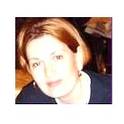Presentation
Matevosyan NR. Digital Knowledge Management and Medical Informatics.
International Forum on Knowledge Asset Dynamics (IFKAD), 2020
(2020)
Abstract
Problem Definition: Medical practitioners and scholars often face challenges in managing overarching digital knowledge that acquires, inducts, deducts, infers, replicates, retrieves and distributes what is known today. The ubiquitous use and fast deployment of digital knowledge – featured by instant and dynamic feedback – create a comfortable platform for self-directed learning laboratories that may expand perceived competencies beyond the factual expertise. Such a chaos is potent with inaccurate diagnostics, wrong treatment or imprecise endpoint selection in scientific research. To be effective, the virtual learning must capture the real system of concern, with sufficient fidelity toward the learning goals. Yet, the limited access to the real time medical concerns. or predictions becomes an adverse determinant or denominator of e-learning. On the other hand, the vigorous sharing of easily accessible literature raises integrity questions. The current effort is to acknowledge the limitations and promulgations thereof. Citations of the open-for-access (OFA) research papers are gradually dominating upon the citation of non-open-for-access (NOFA) literature. The OFA learning removes barriers (financial, academic, focal, local) in accessing scholarly works. Nonetheless, the opponents question what is the return on investment while paying for publishing an OFA article or whether self-archiving should be mandatory- as contemplated by the funders. Aim: An effort was made to compare the bibliometric (citatory) impact in a cohort of the OFA and NOFA articles published in the “American Journal of Public Health” journal. Selection of the above named journal was bias-free. There is no strategic, fiduciary or business relationship between the journal and the author. The “American Journal of Public Health” was picked for its established neutrality toward the diverse communities of medical practitioners, pharmacists, public health advocates or psychology researchers. Sampling and methodology: Citation patterns were located through mapping the results of the longitudinal quasi-baseline study of 31 (36 percent) OFA scholarly articles and 56 (64 %t) OFA papers (a total of 87) published between 2016 and 2019. Characteristics of publications (number of the co-authors, degrees and affiliations, lifetime publication records) were adjusted for non-linear multiple regression models on comparable clusters. For the binary data, relative risk (RR) and its 95% confidence interval (CI) were applied on an intention to treat basis. Continuous data were presented by the weighted mean difference statistic and correlated by the Pearson queue. Point-Biserial correlation was used when one variable was dichotomous. Results: The average number of the OFA citations was slightly lower as compared to the NOFA citations (OR 1.67 [1.15-2.89] ). The proportion of articles cited at least once was higher in the NOFA group (RR 3.28, at 95 percent CI). After adjusting for the confounders (number of authors, affiliations, rank) , the NOFA articles remained affirmatively more consumed and cited (RR 5.61, 95% CI). Conclusions: The easily navigable digital knowledge shifts to a new paradigm of self-directed learning and limited ambiguity on part of the medical practitioners or scholars. Knowledge portals, as single-point-access software systems with unbiased indexing and categorization, could be one of the solutions in aligning the odds.
Keywords
- Digital Learning
Disciplines
Publication Date
Fall September, 2020
Location
University of Basilicata, Matera, Italy
Citation Information
Naira R. Matevosyan. "Matevosyan NR. Digital Knowledge Management and Medical Informatics." International Forum on Knowledge Asset Dynamics (IFKAD), 2020 (2020) Available at: http://works.bepress.com/naira_matevosyan/100/
Creative Commons License

This work is licensed under a Creative Commons CC_BY-SA International License.
